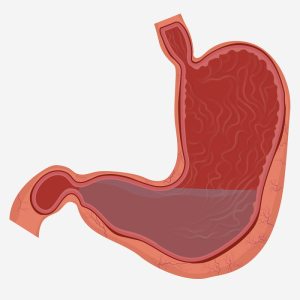by
Thomas Dworetzky, Contributing Reporter | January 18, 2017
Using PET scans to assess chemotherapy response in patients with esophageal cancer can lead to better outcomes in this hard-to-treat disease, according to a new clinical study presented at the 2017 Gastrointestinal Cancers Symposium in San Francisco.
While the scans are in regular use in lymphoma therapy decisions, this is one of the first studies to look at their benefits with pre-surgery treatment choices in esophageal cancers.
The prognosis for esophageal cancer is typically poor, with a five-year survival rate below 50 percent. There are a number of different chemotherapy approaches used, reliable ways to predict which is best have been lacking.



Ad Statistics
Times Displayed: 57530
Times Visited: 1695 Ampronix, a Top Master Distributor for Sony Medical, provides Sales, Service & Exchanges for Sony Surgical Displays, Printers, & More. Rely on Us for Expert Support Tailored to Your Needs. Email info@ampronix.com or Call 949-273-8000 for Premier Pricing.
“In this study, we are adding induction chemotherapy before chemoradiation and showing that using PET scans after the induction chemotherapy to assess response can help doctors make quick course corrections to maximize patient benefit from chemotherapy,” said author Dr. Karyn A. Goodman, a radiation oncologist at the University of Colorado School of Medicine said during an American Society of Clinical Oncology presscast on her research.
This additional step does extend the time until patients receive surgery. But using PET to determine treatment effectiveness did “improve the efficacy of the treatment as shown by the ability to achieve a pathologic complete response, meaning there were no traces of cancer in the tissue specimen taken at the time of surgery,” she noted.
The study looked at 257 patients with stage II-III esophageal and GEJ adenocarcinoma. After an initial PET scan they were put into groups and received one of two chemotherapy regimens. Repeat PET scans during treatments were used to show if the particular therapy was working. If it was not, patients were put on the other regimen. The scan led to a number of patients being switched – 39 out of 129 patients who received FOLFOX induction chemotherapy, and 49 out of 128 patients who received carboplatin/paclitaxel.
Of those who were switched, 15.6 percent had a pathologic complete response. This compared favorably with prior research in which pre-surgery chemo was not changed. In those patients who were not responsive to chemo the complete pathologic response rate was 5%.
The promising results suggest PET scans can be used going forward to guide treatment. “However, we still need to further refine what is the most effective regimen for this disease,” advised Goodman.
Rates of these cancers have been going up in the U.S. since the 1970s with about 17,000 cases and 16,000 deaths from the disease.

